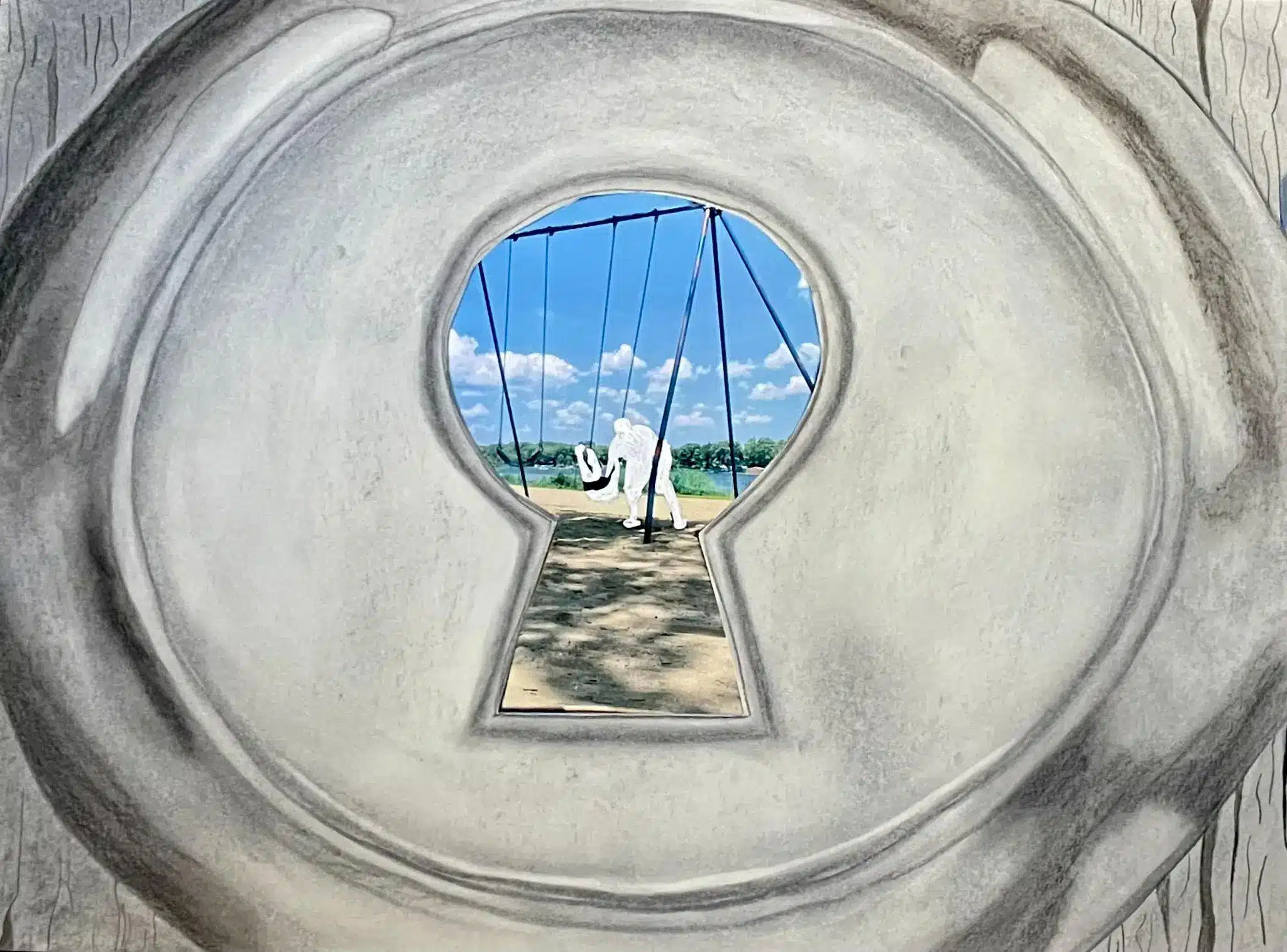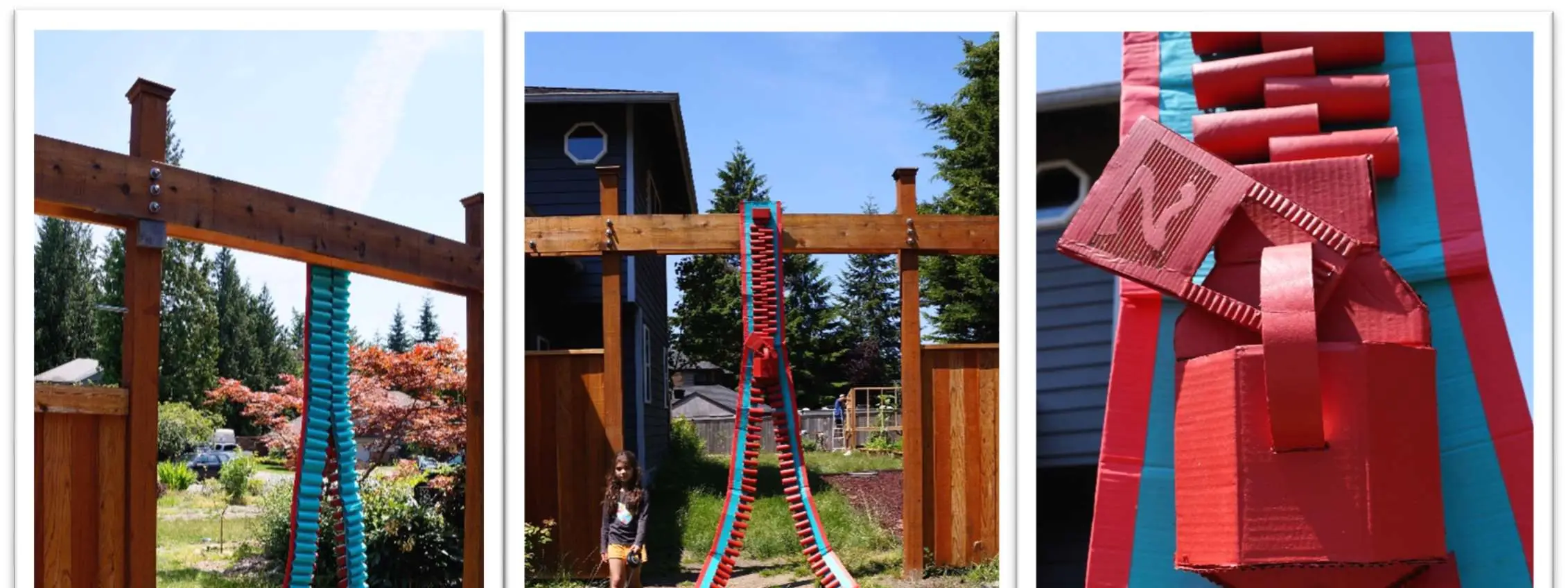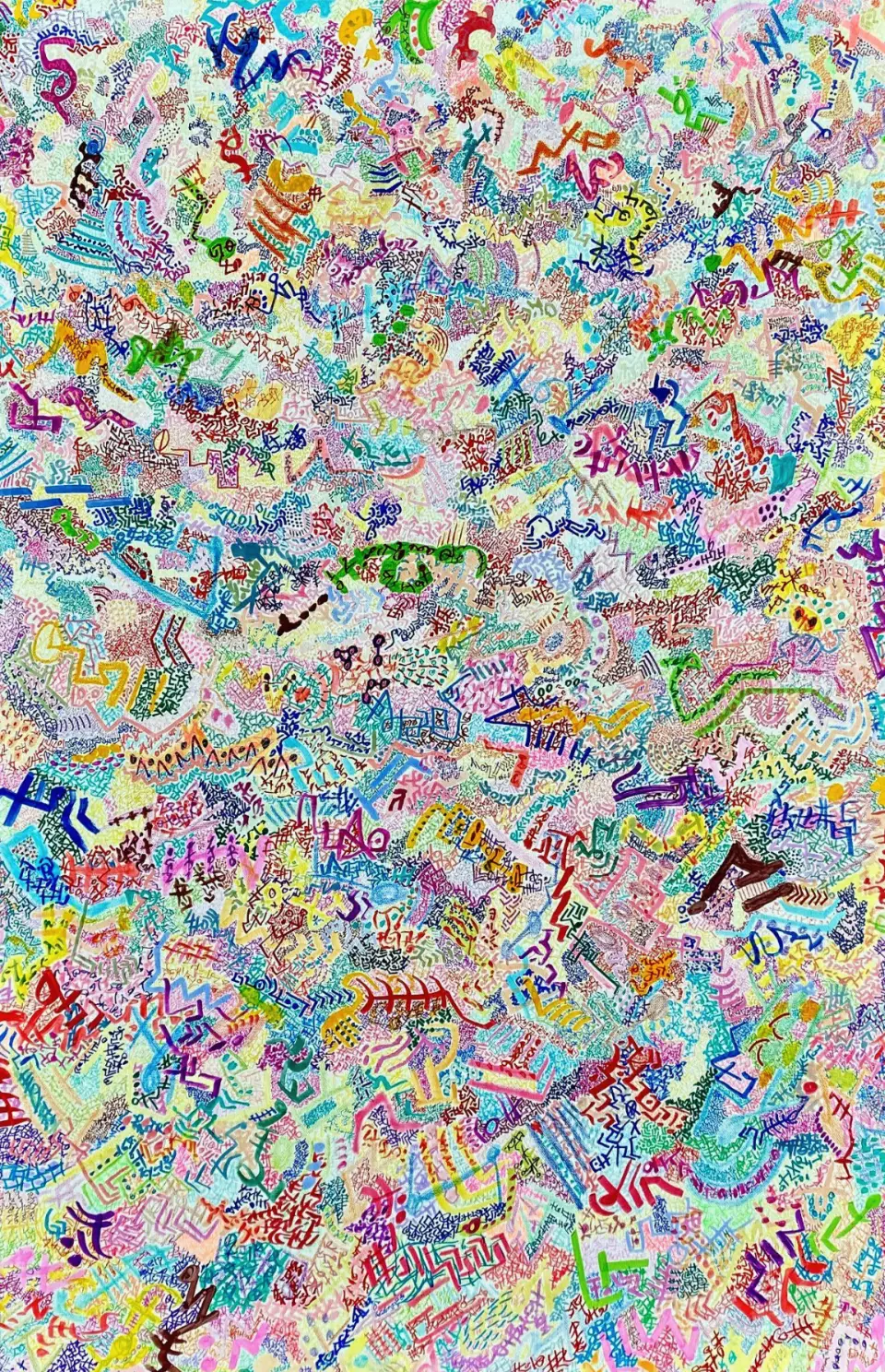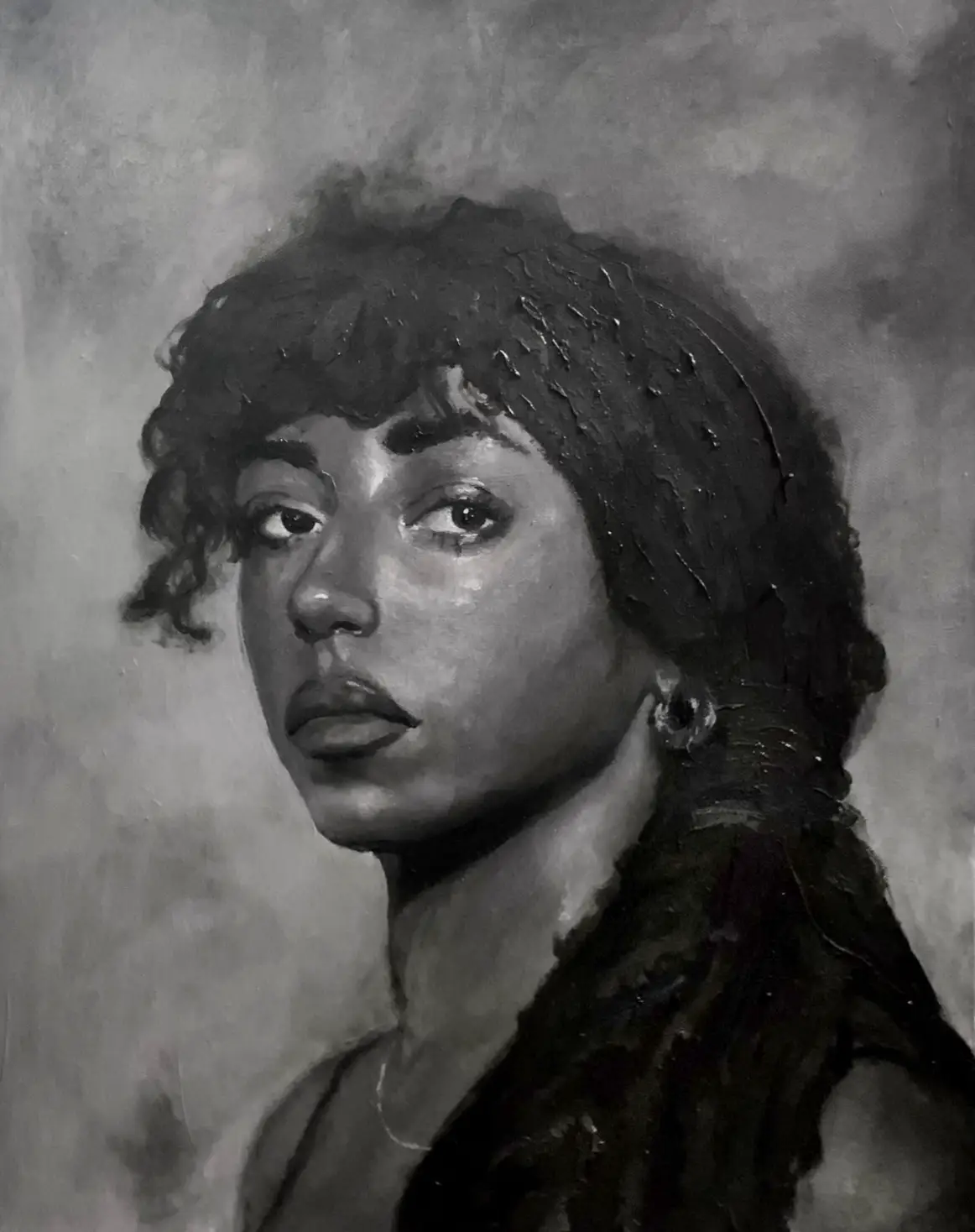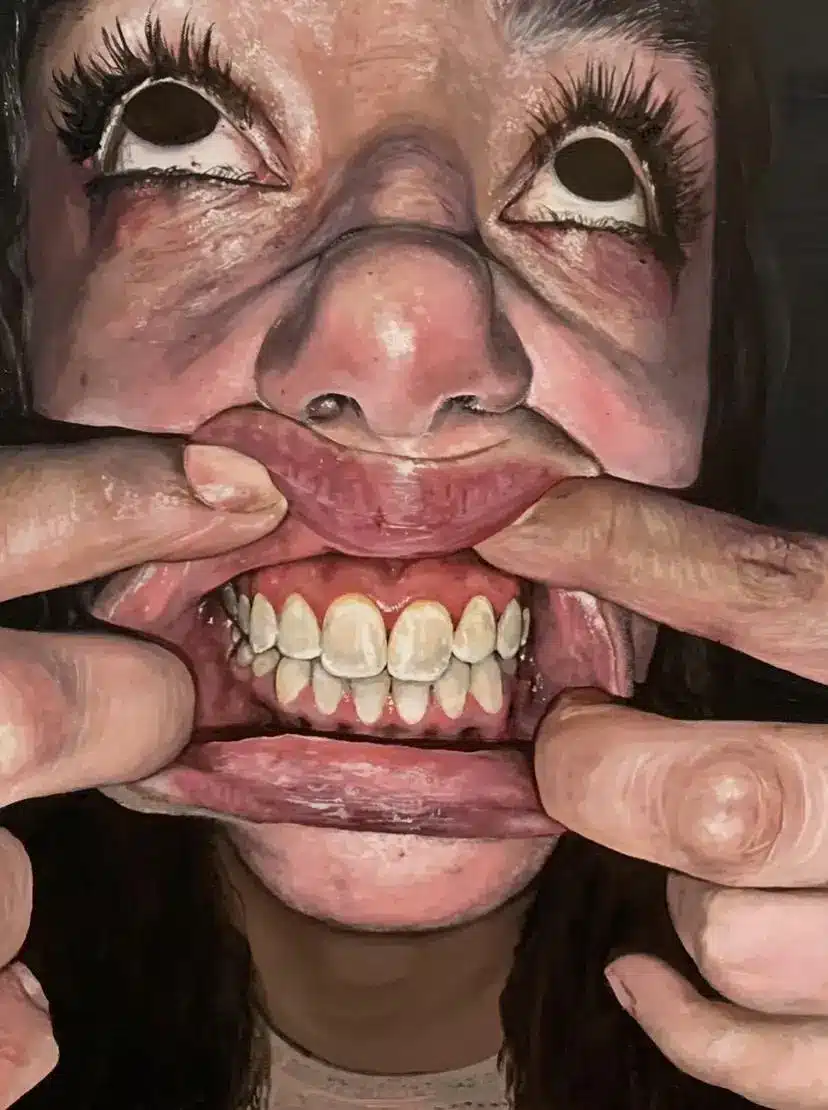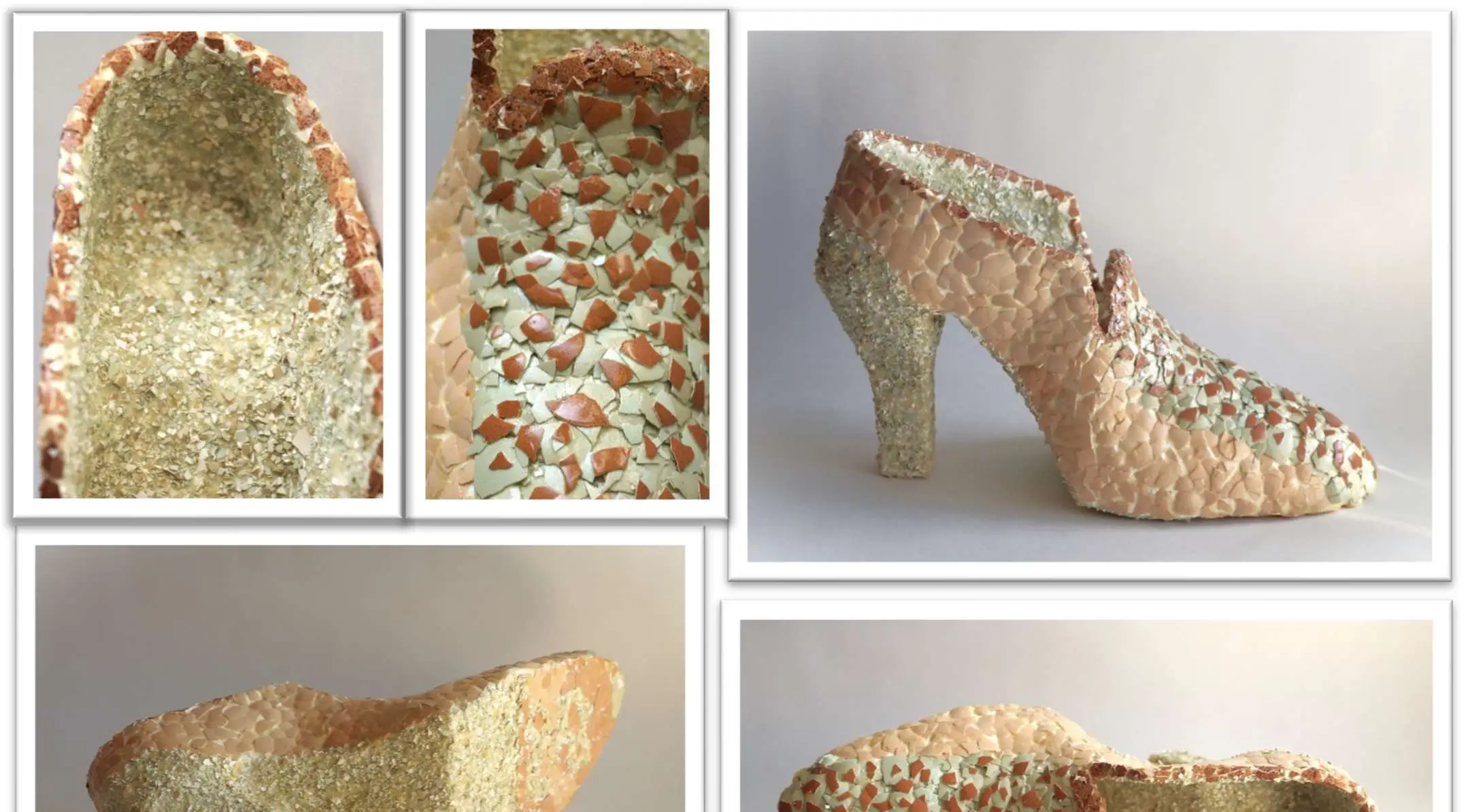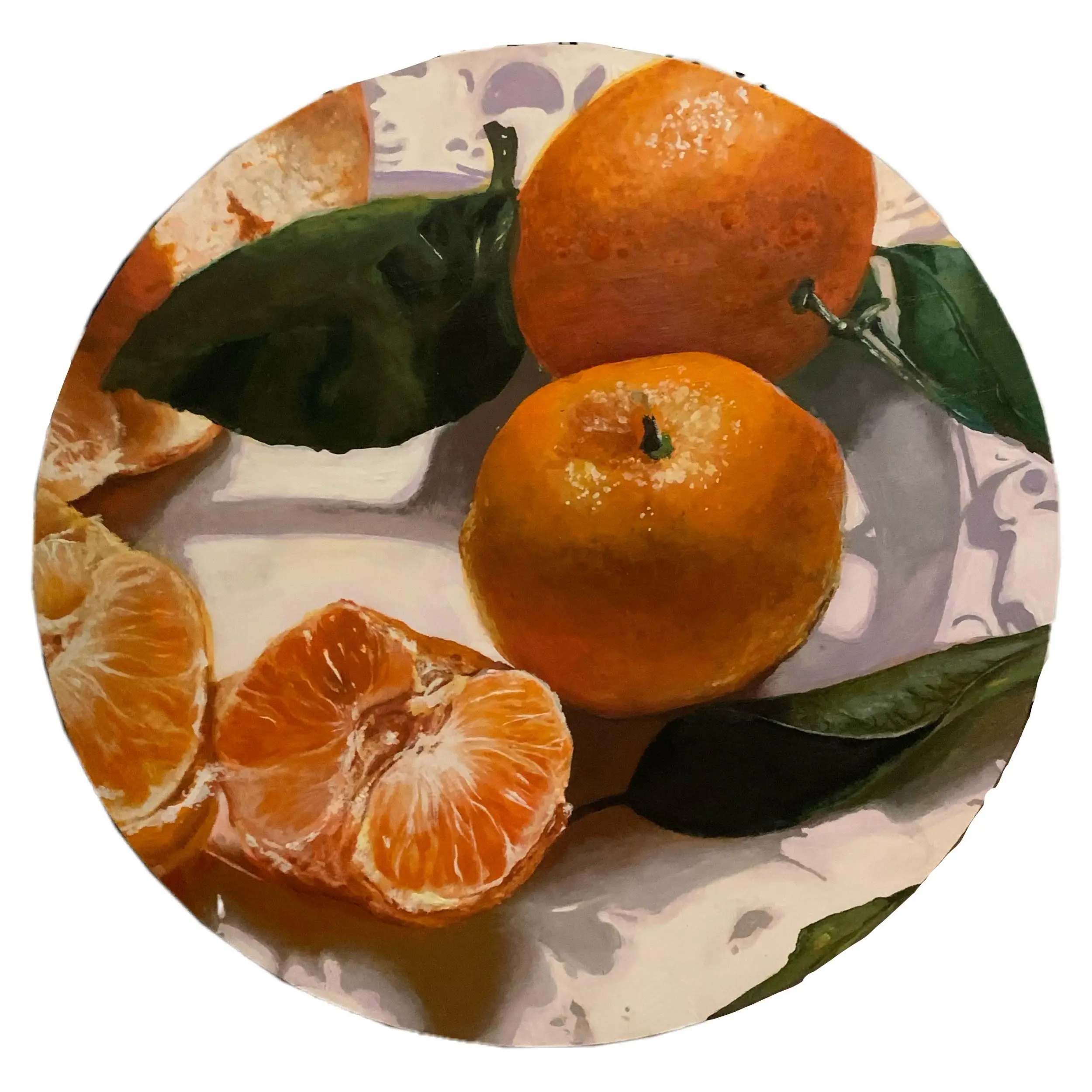Art Education Degree
Bachelor of Fine Arts
"*" indicates required fields
Art Education Degree PROGRAM OVERVIEW
The expression “art speaks where words are unable to explain” is the reason why exploring your artistic side is a powerful way to share your creative vision. More powerful still is the ability to share that creativity through the art of teaching, specifically in becoming an art teacher for K-12 students. Being the one awakening another person’s creativity is an art in itself. RMCAD’s Art Education classes are helping students learn how to become an art teacher by acquiring the technical tools and teaching philosophies they need with an art and education degree program that helps students hone their skills both as an artist, and as a teacher!
With a high-level of support and resources throughout your Art Education degree, you’ll graduate confident and ready to inspire a new generation of talented artists and visual culture, along with cultivating:
- Your own approach to art instruction, supported by department faculty with a diversity of teaching experiences and approaches to art education
- Growth in your artistic practice to enhance teaching
- A comprehensive skill set in the field of art education
- The confidence to launch your career and meet the needs of learners
- Expertise in designing and delivering unit plans that honor their students’ identities
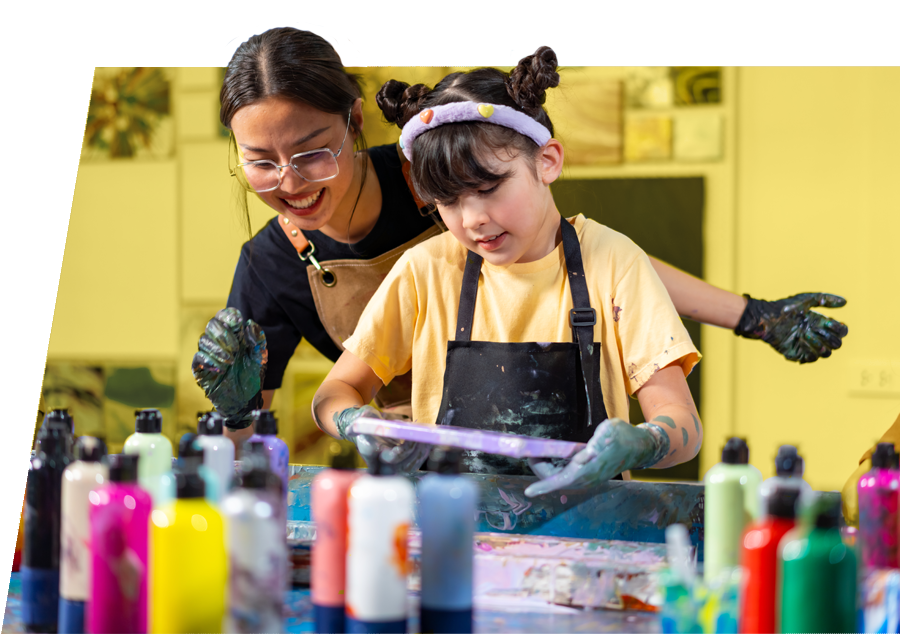
Teaching License Information
The RMCAD Art Education teacher preparation program is approved by the Colorado Department of Education (CDE) and the Colorado Commission on Higher Education (CCHE). RMCAD graduates in Art Education are prepared to apply for a K-12 teaching license in Art with the Colorado Department of Education.
RMCAD’s Art Education BFA allows graduates to apply for their Colorado Teaching Licensure and teach in the state of Colorado. Students interested in teaching in another state will first apply for their Colorado Licensure through the Colorado Department of Education (CDE) and then may be eligible to transfer licensure to their state. Students interested in licensure outside of Colorado should refer to the Disclosure for Professional Licensure section of the website, located here.
ART EDUCATION PROGRAM HIGHLIGHTS

Psychology of Creativity

Teacher Professionalism

Practical Teaching Skills

Performance Standards

Three Art Emphasis Tracks to Choose From
STEPS TO ADMISSION

1
Complete your artist meeting with an admissions representative.

2
Submit an admissions application.

3
Create and submit your portfolio to be considered for a scholarship.

4
Submit official high school and college transcripts (for transfer students).

5
Submit the current year’s FAFSA and other financial aid documentation.
ACCREDITATION


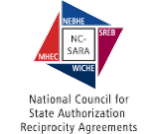
TUITION + FINANCIAL AID
At RMCAD, we understand that investing in a college education is a major decision and a major investment. That’s why we offer competitive, affordable tuition when compared to other art and design colleges. Students’ tuition rates are locked in at the time of their initial start date and will not increase as long as they remain enrolled in their program.
ART EDUCATION DEGREE COURSE DETAILS
In this art teacher degree program, you will cover theoretical approaches to contemporary art teaching, technology in art classrooms, a critical lens to examine school practices, and core teaching methods that are unique to your style, while tapping into your own creativity with 15 credit hours in one of four emphasis areas, as well as:
- Online or on-campus class options
Fingerprint-based background check
- 200 observation hours in elementary, middle and high school classrooms in your neighborhood
- 600 hours of full-time student teaching without pay over 2 terms in year 4. RMCAD students complete 1 term (8 weeks) of student teaching in an elementary visual arts classroom with a licensed art teacher and 1 term (8 weeks) of student teaching in an middle or secondary visual arts classroom with a licensed art teacher
RMCAD offers classes year-round in both on-campus and online delivery formats. At RMCAD, we believe that online learning is an important part of the overall college learning experience. To provide students multiple scheduling options, diverse learning modalities, and experience in the virtual environment, all on-campus students are required to take part in some online education.
Liberal Arts Courses (45 Credits)*
AH 1110
Art Historical Methods + Theories
(3 Credits)
EN 1110
Composition I
(3 Credits)
HU 1110
Humanities I: World Thought I
(3 Credits)
AE 2220
Philosophy of Art + Education
(3 Credits)
The Liberal Arts curriculum is an exciting part of every student’s academic and creative journey at RMCAD. These courses provide the opportunity for students to engage with complex questions and ideas to develop critical thinking skills, a global consciousness, and awareness of art historical foundations that are essential for their intellectual, creative, and personal growth.
*This section does not include the full list of courses for this program.
Art Education Courses (29 Credits)*
AE 2215
Introduction to Art Education
(3 Credits)
AE 2241
Design for Learning
(3 Credits)
AE 3263
Methods of Art Education, K-12 Part I
(3 Credits)
AE 4246
Learning Environments
(3 Credits)
*This section does not include the full list of courses for this program.
Foundations Courses (21 Credits)*
FD 1020
2D Design: Elements + Principles
(3 Credits)
FD 1120
Topics in Color
(3 Credits)
FD 1600
Studio Seminar: Methods of Inquiry
(3 Credits)
FD 2220
Time-based Media
(3 Credits)
Foundation Studies educates students in the development of creative studio practice by fostering individualized and collaborative learning that emphasizes cultural engagement, process, critical thinking, and visual literacy.
*This section does not include the full list of courses for this program.
Fine Arts Courses (15 Credits)*
ART 1120
Ceramics: Handbuilding + Surfacing
(3 Credits)
ART 1130
Printmaking: Relief, Intaglio, + Monotypes
(3 Credits)
ART 1151
Painting Fundamentals: Tools + Techniques
(3 Credits)
ART 1190
Sculpture: Armatures + Welding
(3 Credits)
*This section does not include the full list of courses for this program.
Animation Emphasis (15 Credits)*
AG 1110
Introduction to Animated Storytelling
(3 Credits)
AG 1070
Digital Painting for Film + Games
(3 Credits)
AN 1230
Fundamentals of Animation
(3 Credits)
AN 2310
Creative Visualization
(3 Credits)
*This section does not include the full list of courses for this program.
Fine Arts Emphasis (15 Credits)*
ART 2220
Ceramics: Throwing in the Round
(3 Credits)
ART 2230
Printmaking: Photographic Printmaking + Alternative Media
(3 Credits)
ART 2251
Painting: Contemporary Practices
(3 Credits)
ART 2290
Sculpture: Cast + Assemble
(3 Credits)
*This section does not include the full list of courses for this program.
Graphic Design Emphasis (15 Credits)*
GD 1000
Typography
(3 Credits)
GD 2100
Layout Design
(3 Credits)
GD 2210
Vector Illustration
(3 Credits)
GD 2220
Raster Image Processing
(3 Credits)
*This section does not include the full list of courses for this program.
Illustration Emphasis (15 Credits)*
IL 1200
Freshman Drawing Portfolio Review for Illustrators
(3 Credits)
IL 1510
Perspective
(3 Credits)
IL 2520
Illustration Media
(3 Credits)
IL 2575
Illustration I
(3 Credits)
*This section does not include the full list of courses for this program.
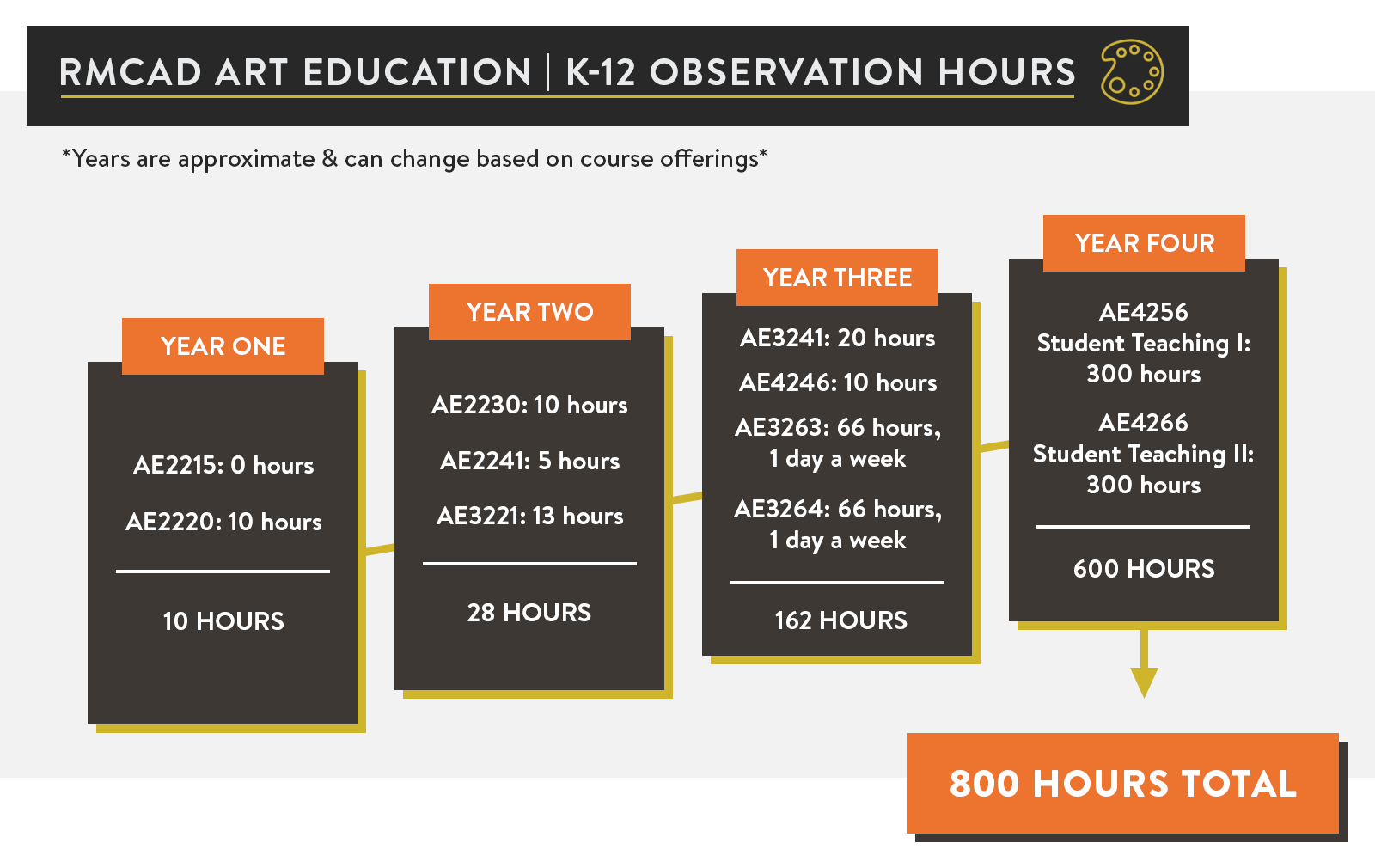

TECH + TOOLS
As a RMCAD student earning their art education degree online, you are joining a supportive community of art educators that nurture your instructional proficiency through the lens of your personal artistry.
All art education online degree students also receive software licensing, a LinkedIn Learning subscription, LMS access, electronic library resources, cybersecurity, mental health counseling, and tutoring services through their semester fees.

ART EDUCATION Stories
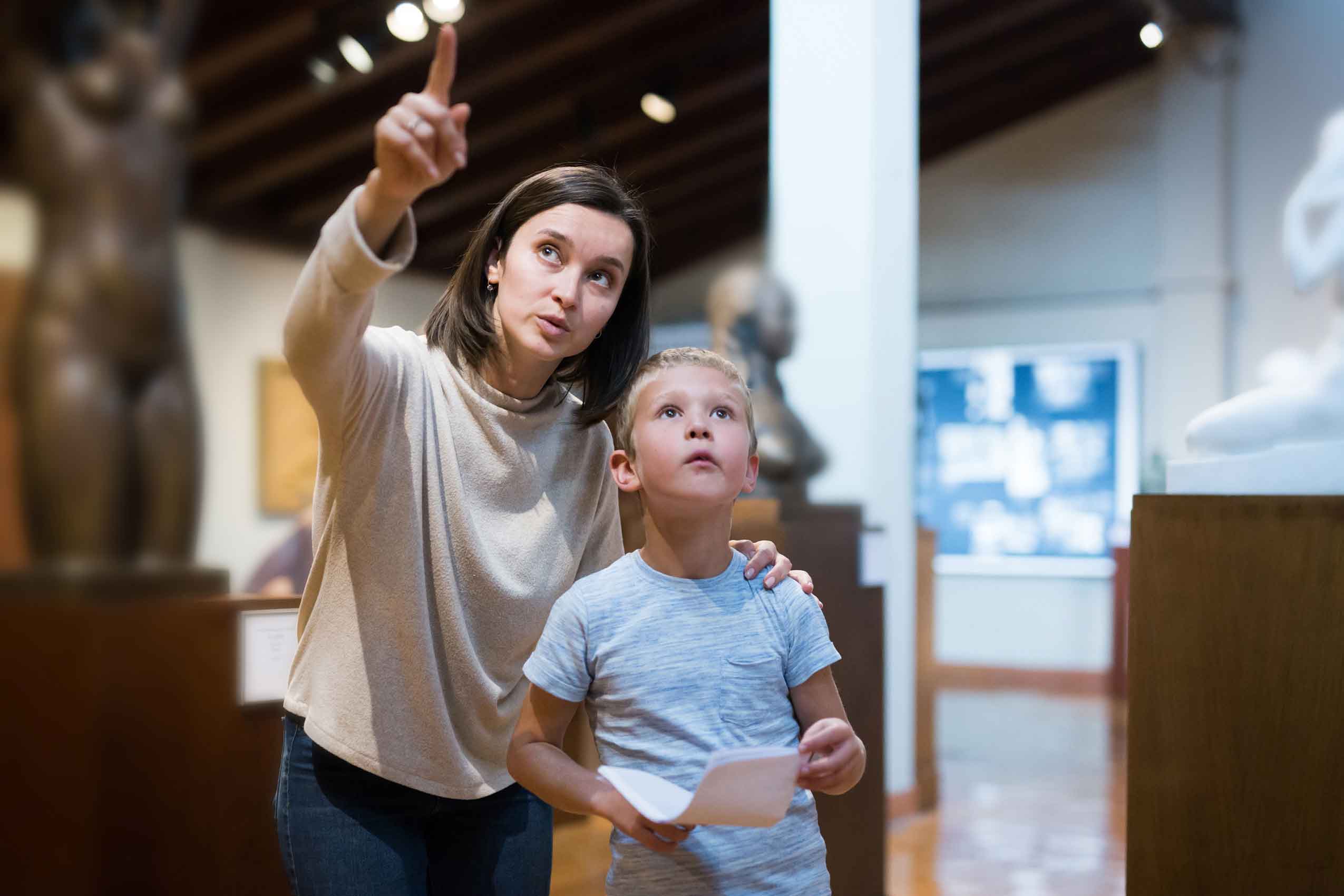
Teaching Art History Creatively: Making the Past Relevant to Today’s Students
Written by Liberal Arts Assistant Professor Kat Medill Art history, a subject that delves into the human story through visual expression, can feel distant and irrelevant to students today. However, when taught creatively, it can

The Role of Student Choice in Art Education: Encouraging Individual Expression
Many educators who work with students of all ages discover that student autonomy is integral to grasping the material and improving overall learning outcomes. While student autonomy leads to a more personalized learning experience in academic subjects such as math and
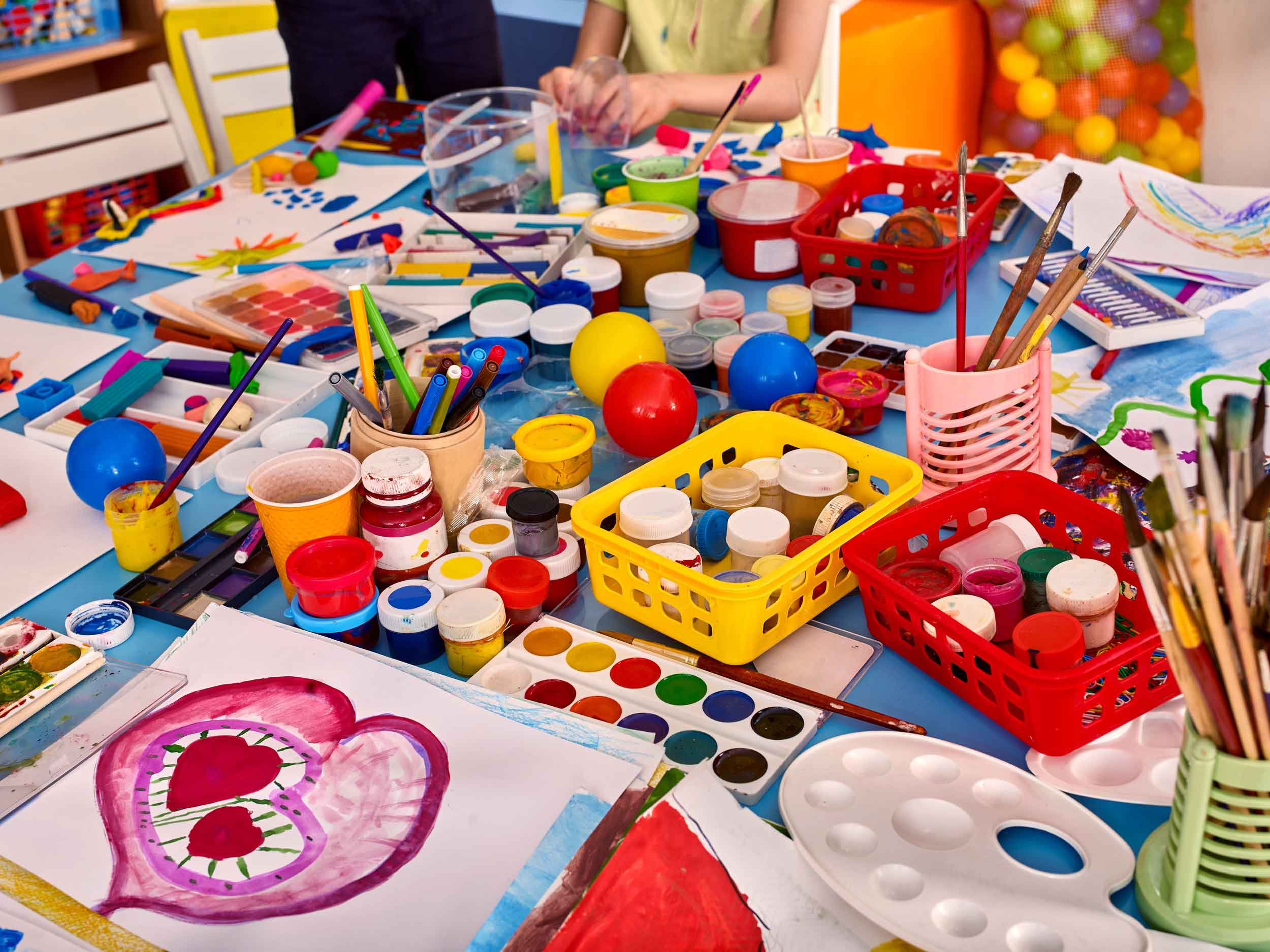
Art Education Beyond the Classroom: Community Projects and Public Art
Art teachers are required to do more than teach their students the basic art skills that they need to explore various mediums. They are charged with the task of helping students see that there is
ART EDUCATION CAREERS
Become an art teacher!
RMCAD’s Art Education Program is approved by both the Colorado Department of Education and the Colorado Commission on Higher Education. Graduates can apply for a Colorado K-12 teaching license in visual arts and begin their career of shaping lives in the classroom. But the opportunities don’t stop there, learn more about additional potential career paths!
*Some of these jobs may require further certifications.
Art Teacher
An art teacher instructs students in the principles, techniques, and history of visual arts, blending art theory with art practice.
K-12 Visual Arts Teacher
A K-12 Visual Arts Teacher plays a critical role in fostering creativity and artistic skill in students from kindergarten through 12th grade, including teaching art concepts and techniques, developing creative projects, assessing student artistic work, and classroom management.
Museum Educator
A museum educator designs and delivers educational programs and experiences for visitors at museums, galleries, and cultural institutions.
After-School Educator
An after-school educator works with children and youth in after-school programs, providing educational and recreational activities in a safe and supportive environment.
Studio Manager
A studio manager oversees the daily operations of a studio, whether in the fields of art, music, photography, film, or design.
Art Director
An art director oversees and coordinates the visual aspects of projects in various fields, including advertising, marketing, publishing, film, television, video games, and more.
Curriculum Designer
A curriculum designer develops and organizes instructional materials and educational programs for school and/or professional settings.
FREQUENTLY ASKED QUESTIONS
What is the focus of the Art Education degree program at RMCAD?
The program prepares students to become K-12 art teachers, emphasizing teaching techniques, classroom management, and developing unique teaching styles.
Will students have to complete a student teaching program for the Art Education degree?
Yes, as a student in the Art Education program at RMCAD, you will gain practical teaching experience. The program includes 200 hours of classroom observation and one semester of student teaching, ensuring you receive hands-on experience in real educational settings. This component is designed to provide you with the necessary skills and confidence to become an effective art educator.
What career opportunities are available for Art Education graduates?
Graduates will acquire the knowledge and skills to start careers as K-12 art teachers, curriculum developers, art education consultants, and museum educators.
What support services are available for Art Education students?
All students receive software licensing, a LinkedIn Learning subscription, LMS access, electronic library resources, cybersecurity, mental health counseling, and tutoring services through their semester fees.
What are the admission requirements for the Art Education degree program?
Applicants need a high school diploma or equivalent and completion of the college’s application process. To be considered for a scholarship, students will also need to create and submit a portfolio of artwork.
What kind of portfolio should students submit for the Art Education program application?
A portfolio showcasing your best work, including examples of art projects and any teaching-related art activities.
What skills will students learn in the Art Education program?
How does RMCAD support Art Education students?
RMCAD offers small class sizes, mentorship, industry-experienced instructors, and well-equipped facilities.
What kind of teaching experience will students gain in the Art Education program?
Students gain real-world teaching experience through required classroom observation and student teaching components.
What are the Liberal Arts requirements in the Art Education program?
The curriculum includes courses that develop critical thinking, global consciousness, and information literacy.
What are the Foundations requirements in the Art Education program?
Foundation courses enable students to refine essential skills, get comfortable with the tools they’ll use throughout their program, and study relevant basics— including composition and color theory. These courses facilitate ideation and collaboration.
What software and tools are used in the Art Education program?
For information on the software, tools and program materials, please visit here.
Can students visit the campus to learn more about the Art Education program?
Yes, prospective students can schedule campus tours or attend info sessions to learn more about RMCAD and the Art Education program.
Are there opportunities for Art Education students to showcase their work?
Yes, students can showcase their work through student exhibitions and events hosted by RMCAD.
What teaching philosophies are emphasized in the Art Education program?
The program emphasizes critical inquiry, artistic agency, and ethical conduct in teaching.
How does the Art Education program prepare students for licensure?
The program aligns with Colorado Department of Education standards, ensuring students meet the requirements for teacher licensure.
Do students need to pass a background check to become art educators?
All students in the Art Education BFA program are required to have a fingerprint-based background check done in their first Art Education class (AE 2215 Introduction to Art Education). Ground and online students residing in Colorado will follow the directions on the Colorado Department of Education (CDE) website. Out-of-state online students will complete a fingerprint-based background check independently with the FBI in their state and send the results to the AE Placement Coordinator. If arrest data is found in the submitted fingerprint-based background check, the AE Placement Coordinator will notify the student of steps they need to complete to be cleared to enter any K-12 schools to observe and student teacher to earn their RMCAD Art Education degree. All Art Education students are required to submit another fingerprint-based background check directly to CDE upon applying for their Colorado teaching licensure after graduation.
